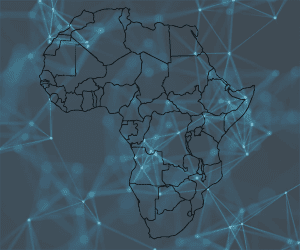
STEMM and Belief in Diverse Contexts Conference: reflections from Africa

From 7-9 July 2021 we held our annual INSBS conference, STEMM and Belief in Diverse Contexts: Publics, Praxis, Policy and Pluralism. Postponed in 2020 and held online in 2021 because of the ongoing COVID-19 pandemic, in this post three of our members from Africa reflect on their online conference experience.
Belief and Science is not always a Toxic Combination
By Ganiyat Tijani-Adenle, Ph.D, (Lagos State University)
While it has largely been easy for me to manage the relationship between my own personal beliefs and science, discussing different beliefs was always a very toxic issue in multi-ethnic and multi-religious Nigeria where I am from. Even in academic settings, I find that it is difficult for people to distance their emotions and biases from such discussions. While I appreciate that academics can be reflective, displaying negative emotions against people who do not support their perspectives and framing them as the enemy was what I had challenges with.
I guess this is why we rarely have such conferences and networks like the International Research Network for the Study of Science and Belief in Society (INSBS) in Nigeria. Sure, we have departments of religions in universities and different beliefs are studied in those departments, but bringing these different people together to discuss belief and science without emotions coming in the way has always been a little challenging.
I am in the field of media and communication and until recently, my main research was focused on media and gender, but I saw a call by the INSBS for a conference and I saw it as an opportunity to study an issue that had intrigued me for some time; Nigerian media’s coverage of money-making ritual killings. Responding to that conference call has been the catalyst that has launched me into the study of science and belief, and one that has broadened my horizons. In July, I participated in the INSBS conference and I was positively shocked to discover that the only factor preventing positive discussions of science and belief in society is lack of objectivity and inclusion. The INSBS conference provided me with an understanding of how academics can create an inclusive model that societies can emulate, especially societies like mine where it is so difficult to have empowering discussions around belief and science.
What’s more, the conference broadened my horizons about various aspects of belief and science that interface with society, I enjoyed the social and networking session while my grant writing skills have improved courtesy of the ‘Writing a Funding Proposal’ session with the University of Birmingham’s Tania Cleaves.
What I find most interesting about papers presented at the conference was how very similar the world and its people are, despite the differences in location, history and circumstances, we are more alike than we think, and what links people are actually more than the contexts that separates us. The International Research Network for the Study of Science and Belief in Society is doing a wonderful job promoting the study of science and belief in society and I am very excited to be a part of this great initiative. It will be great to continue the growth of this network in Africa.
Online Conferences in the COVID-19 era; Whova to the Rescue!
By Umoh Samuel Uwem (University of KwaZulu-Natal)
The STEMM and Belief online conference was stimulating. I am exhilarated I had a chance to meet with the participants and speakers. It was a lovely day when I went to the session. Before meeting the speakers on zoom, I was quite interested in learning more about them. I was delighted to learn a great deal from them about the dynamics of science and belief and its applicability to all spheres of life.
However, the use of conference management software, Whova was not so easy as it was the first time I used software like this. The conference was one of the most exciting conferences I’ve attended to date. Initially I did not understand Whova, but awareness of Whova opened other opportunities to organize conferences online internationally. I enjoyed the quality of the papers presented and the discussion because it broadened my knowledge of science and religion. I’m pondering how to apply what I’ve learned to my career and workplace at this conference. I can start several projects inspired by what I heard from others at the conference.
Three full days on Zoom, was that wise?
By Oyewo Adetola Elizabeth (University of KwaZulu-Natal)
I was ecstatic when I got an email that my paper had been selected for presentation at the STEMM and Belief in Diverse Contexts Conference, which ran online from 7-9 July, 2021. However, as I clicked the Zoom link to the conference from the comfort of my Durban home, I wondered aloud if it was worth it. I also pondered the difference between attending a conference through Zoom and attending a physical conference in person. I realized that my paper ‘Maze of Spiritual Preparation of Teachers: Cosmic Tales and Fables ‘God with No Hands’ was not as perfect as I wanted it to be, but that I was able to present it. Attending conferences has always appealed to me because of the opportunity to network with other academics and learn from experts.
This was the first time I attended a conference outside my scope as an educationist working within the intersection of migration and students. I checked the conference program a few weeks before the conference began, and the anticipation began to rise. Presentations such as “Phantom Wealth: Nigerian press reportage of money-making rituals and its implications for ritual killings/violence in the country” gave me food for thought. The presentation on “The book of Carson: Silent Spring as a Secular Parable” offered some insight into something which I know little about, piqued my interest, and, in the end, astonished me.
Although, I love attending conferences physically and not by Zoom. Unfortunately, there was no physical gathering because of COVID-19, which prevented a physical gathering resulting in the online format. Zoom meetings are exhausting, so the tea break time was a nice way to keep tempo. Our conversations were hampered by a lack of time, and the limits of Zoom technology as a networking tool were perhaps most apparent here.
To begin with, the STEMM and Belief in Diverse conference was a wonderful opportunity to meet researchers globally who are researching religion and science in many different societal contexts. Attending an international conference necessitates careful planning. The conference organizers were really helpful in terms of planning and information. Funding is also a pre-condition to participate in a conference, which can usually hinder postgraduate students like me. However, the organizers covered the conference fee. The initiative by the conference organizer to use the Whova platform during the conference was the right step. The conference was a rigorous and thought-provoking opportunity to reflect on how I could venture into science and religion in an educational context. Zoom has been an absolute savior in many ways during COVID-19, but I will be happy to get the the human interaction back at future events!
If you would like to be kept up to date with future conferences, workshops and other events organised by INSBS, please join our mailing list. To learn more about our grant schemes, which are currently open for applications, click here.
To learn more about the members who wrote the above reflections, please check our their profiles in our Researcher Directory.
